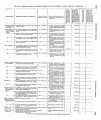| Title |
Annual Report of the Commissioner of Indian Affairs for the year 1865 |
| Subject |
Indians of North America; Federal government; Indian reservations; Indians of North America-Education; White people--Relations with Indians; Land use; Annuities; Allotment of land; Treaties; Education; Indians of North America--Education; Ute Indians; Travel; Language and languages; Agriculture; Navajo Indians; Shoshoni Indians; Food; Indigenous peoples--North America |
| Keywords |
Indian Agency; Reservations; Annual Report; Indian; White Relations; Inter-tribal Relations; Allotment; Superintendency; Resources; Kanosh; Native Americans |
| Publisher |
Digitized by J. Willard Marriott Library, University of Utah |
| Tribe |
Paiute; Navajo; Ute; Shoshone; Goshute |
| Band |
Uintah |
| Language |
eng |
| Description |
Excerpts concerning Utah from the Annual Report of the Commissioner of Indian Affairs - Courtesy of the University of Wisconsin Digital Collections. Agents from several agencies, including California, Washington Territory, Arizona, Nevada, New Mexico, Idaho, Montana, Utah, and the Northern and Southern Superintendencies, submit reports. Agent Indian Agent of Arizona reports that Paiute Indians have taken up residence in northern Arizona. The Indian Agent of New Mexico reports that Navajo prisoners are residing at the Bosque Rodondo Reservation. The Utah Superintendency discusses the Shoshones, Northern Shoshones, Goshutes, the Piedes, and the Utes |
| Type |
Text |
| Coverage |
Washington (D.C.) |
| Format |
application/pdf |
| Rights |
Digital Image © 2011 America West Center. All Rights Reserved |
| ARK |
ark:/87278/s60k558x |
| Creator |
Cooley, D.N. |
| Date |
1865 |
| Spatial Coverage |
Colorado; Arizona; California; Utah; Great Salt Lake (Utah); Nevada; Idaho; Fort Laramie (Wyo.); New Mexico; Washington (D.C.) |
| Setname |
uaida_main |
| ID |
368582 |
| Reference URL |
https://collections.lib.utah.edu/ark:/87278/s60k558x |

































































































